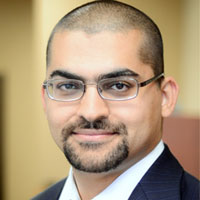Postpartum Hair Loss: Causes and Remedies
Postpartum (after child birth) hair loss occurs due to sudden change in estrogen level in the body of the mother. During pregnancy, the body produces high levels of female hormone, mainly estrogen. These hormones help the hair remain in the growing phase, also called the Anagen phase, so there is increased hair growth during pregnancy.
There are three cycles for hair growth: Anagen (the growth phase), Catagen (the intermediate phase), and Telogen (the shedding phase).
During Anagen phase the follicle produces new hair. The anagen phase can last from three to as much as seven years. The period and the density of hair growth may vary from one individual to the other depending on the genetic factors.
Catagen, the intermediate phase, immediately follows the Anagen phase. This period lasts between two and four weeks. During this period, the base of the follicle moves upwards towards the surface of the skin.
During the Telogen phase, which lasts for three to four months, a new hair begins to grow from the hair follicle. As the new hair grows upwards, the old hair is pulled out naturally. These are the hairs that come out when we comb or shampoo our hair.
After child birth, the hormone level in the body falls back to normal, leading to telogen effluvium -- excessive shedding of hair. This occurs between one to five months after delivery, according to Truthinaging.com, and affects 40-50 percent of new mothers. Hair growth should return to normal rate within six to 12 months after delivery.
However, for some women hair never returns to normal state after delivery. Hormones may again be blamed for this. Fluctuating estrogen in the body can have a toll on women's hair. This problem is commonly found in women in peri-menopause age as well. In both cases, women experience shorter hair growth cycle.
A recent research conducted on one hundred Dubai and Abu Dhabi-based women aged 25–60, which include UAE nationals, Asians, Western and Arab women revealed that women in the Middle East and Asia suffer hair loss the most.
Malnutrition is one of the major reasons for hair fall in women of all age groups, according to researchers. Other culprits include desalinated tap water and extreme climate conditions typical of the Middle East and some parts of Asia.
Natural supplements like Viviscal are effective in treating hair loss. Viviscal is an all-natural supplement with ingredients such as AminoMar C Marine Complex that is proprietary to the company, horsetail extract, vitamin C and other antioxidants and proteins that help strengthen hair and support hair growth.
HairFear







